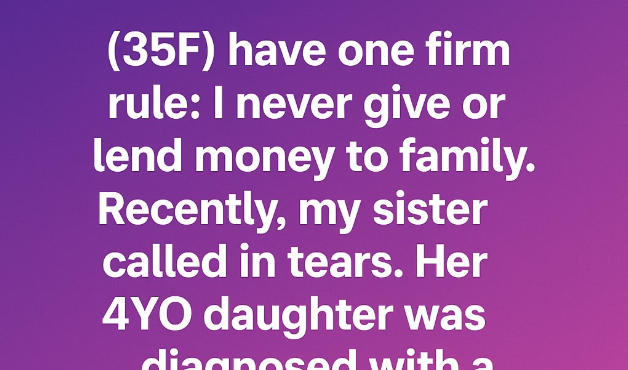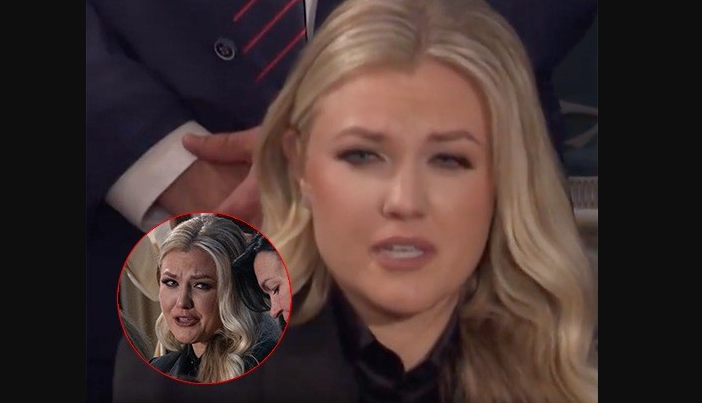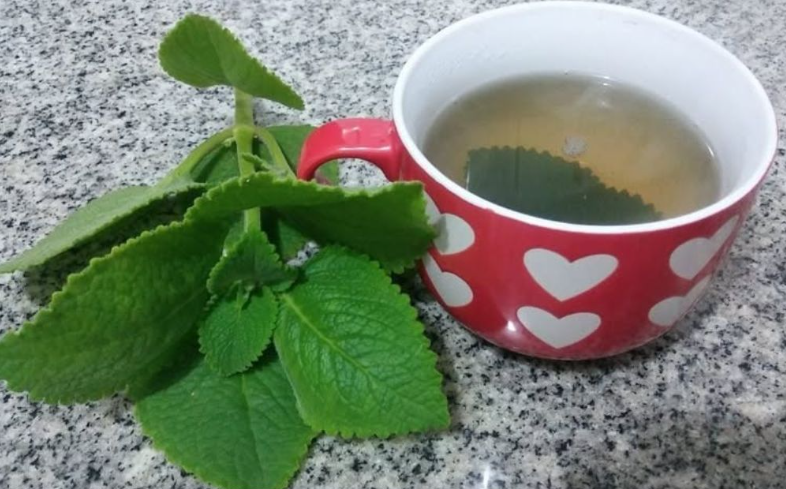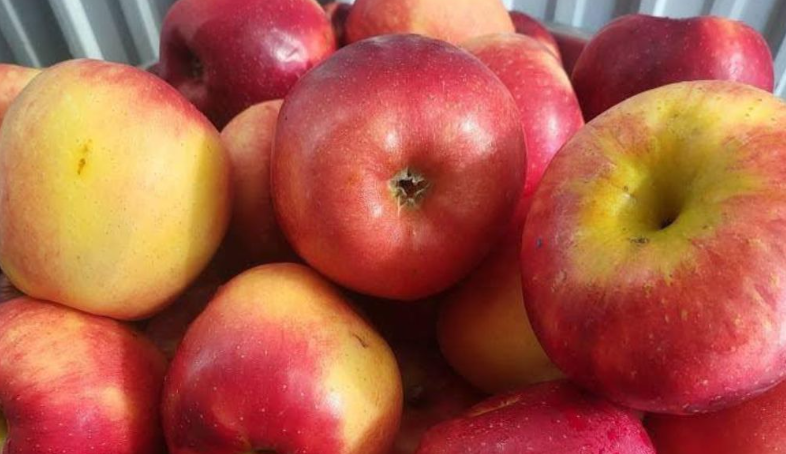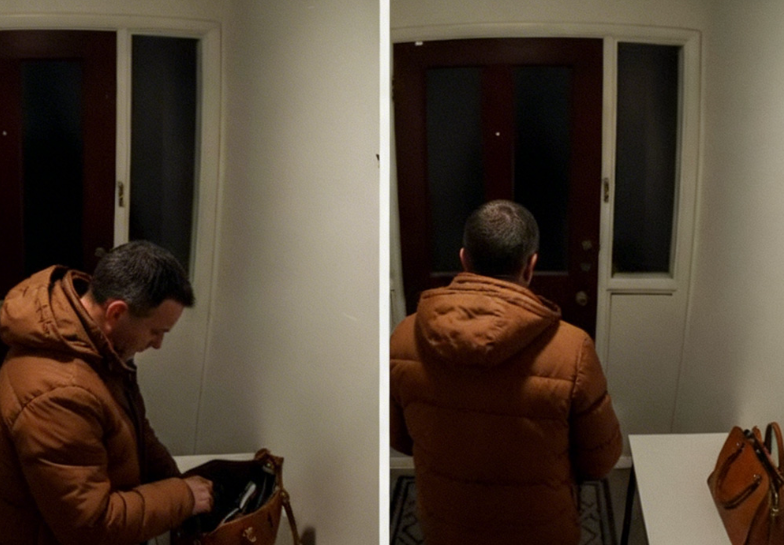When the screen of my phone lit up with my sister’s name during a quiet late evening, I hesitated before answering. I felt exhausted, overwhelmed by the demands of my job, and already tense from the day’s pressures. Nevertheless, I accepted the call — and her voice immediately revealed deep distress. She wept uncontrollably, struggling to form words. Amid her tears, she explained that her four-year-old daughter faced a diagnosis of a rare condition — one that would gradually diminish her energy and vitality as time passed. Then she asked the question I had long feared: “Will you support me? I require funds for her medical care.” My heart constricted, yet I adhered to my enduring principle — avoid lending or giving money to relatives. I had witnessed numerous family bonds fracture because of such matters. Therefore, I declined. She paused briefly in silence, then ended the call. I remained in the quiet room, assuring myself that my decision aligned with sound judgment… until the following morning, when I discovered her actions.
Acquaintances started sending me messages, sharing links to an online campaign my sister had created. The image of my niece beaming with a hospital identification band on her wrist shattered my composure. The campaign description radiated optimism and affection rather than resentment. My sister detailed the medical findings, the accumulating expenses, and her anxiety about the limited time available. People unknown to us contributed generously, offering encouraging messages and expressions of support, whereas I — her sibling — had shut down my empathy the instant she sought aid. For the initial occasion, my “principle” appeared more as a barrier erected from self-importance than as insightful guidance. I recognized that her true requirement extended beyond financial assistance — she sought empathy and connection.
That same evening, I traveled by car to her residence. Upon opening the door, she appeared diminished in stature, fatigued from ongoing concerns. My niece rested on the sofa, sketching blooming plants with colored wax sticks, completely oblivious to the delicate nature of the situation. I expressed regret — not solely for denying her request, but for failing to provide emotional presence during her greatest need. My sister shed tears once more, gently this time, and explained that she never intended to violate my principle or cause discomfort — she simply had no other options. We conversed extensively at the dining area table, discussing apprehension, weariness, and aspirations. Ultimately, I assured her of my commitment — not merely with monetary contributions, but through attending medical visits, assisting with household supplies, and watching over her daughter during periods when she required recuperation.
From that evening forward, our relationship transformed profoundly. We grew nearer than we had in many years, connected through mutual comprehension rather than obligation. My former principle no longer holds its previous importance — empathy now prevails. I discovered that life often challenges individuals through subtle, uneasy instances where choices reveal priorities: upholding correctness or embracing generosity. On this occasion, I selected generosity — and it restored my bond with my sister.
To fully appreciate the depth of this experience, consider the broader context of family dynamics and the role of personal boundaries in nurturing relationships. Many people establish rules like mine to protect their financial stability and emotional well-being, drawing from past observations or personal hardships. In my case, years of seeing loans lead to unspoken resentments or broken trusts reinforced this stance. However, this incident illuminated how rigid guidelines can sometimes overlook the human element in crises. Rare illnesses in children, such as the one affecting my niece, demand not only medical intervention but also a network of support that transcends material aid. Treatments for such conditions often involve specialized therapies, experimental protocols, and ongoing monitoring, all of which accumulate costs rapidly. Families navigate insurance limitations, travel to expert facilities, and manage daily disruptions, creating a whirlwind of stress.
Reflecting on that phone call, the initial hesitation stemmed from a place of self-preservation. Work had been particularly grueling that week, with deadlines piling up and little room for personal matters. Answering felt like inviting another burden into an already overloaded schedule. Yet, the raw emotion in her voice pierced through my fatigue. Her sobs carried the weight of a mother witnessing her child’s future uncertainty. The diagnosis itself — a progressive rare disorder — means symptoms escalate unpredictably, requiring adaptive care plans. Parents in these situations often research endlessly, consult multiple specialists, and advocate fiercely within healthcare systems. My sister’s plea highlighted her isolation in this battle; as a single parent managing everything alone, her resources stretched thin.
Denying her request aligned with my principle, rooted in cautionary tales from our extended family. One uncle had lent money to a cousin, only for repayment disputes to escalate into years of estrangement. Another relative’s generosity led to dependency, straining household budgets. These examples shaped my worldview, emphasizing independence and clear boundaries. In the moment of silence after my refusal, I rationalized it as protecting our sibling relationship from potential complications. Hanging up the phone left me in a void, staring at the darkened screen, questioning inwardly but pushing doubts aside.
The morning revelations via messages from friends changed everything. Scrolling through the fundraiser page, the narrative my sister crafted painted a vivid picture of resilience. She described my niece’s playful spirit, her love for drawing vibrant gardens, and how the illness threatened to dim that light. Accompanying photos showed hospital rooms adorned with handmade cards from nurses, my niece’s tiny hand clutching a stuffed animal for comfort. Donor comments poured in: stories of similar journeys, promises of continued prayers, small contributions adding up meaningfully. One message from a stranger who had overcome a child’s illness offered practical advice on navigating treatment options. Another shared resources for support groups specializing in rare pediatric conditions. This outpouring from the community contrasted sharply with my inaction, prompting introspection.
Driving to her home that evening, the familiar route felt laden with unspoken apologies. The neighborhood lights blurred slightly through unshed tears. Arriving, her weary expression upon greeting me spoke volumes about sleepless nights and endless worries. Inside, the living room held traces of normalcy amid chaos: toys scattered, a half-eaten meal on the counter, medical pamphlets stacked neatly. My niece, lost in her artwork, greeted me with a bright smile and a hug, her innocence a stark reminder of what hung in the balance. Sitting beside her, watching crayons dance across paper to form petals and stems, evoked memories of our own childhood creativity.
The apology flowed naturally, encompassing not only the financial denial but the emotional absence. Admitting fault required vulnerability, acknowledging how my principle had blinded me to her vulnerability. Her response — soft tears and reassurance — revealed her own internal conflict. She valued our relationship enough to respect my boundaries yet desperation overrode that. Our conversation unfolded organically, covering the initial shock of the diagnosis during a routine checkup that uncovered anomalies. Specialists confirmed the rarity, estimating low prevalence rates globally, which complicated access to tailored treatments. Costs included not just hospital stays but medications, physical therapy sessions, and potential clinical trials.
As we spoke, ideas for support emerged collaboratively. Financial help would cover immediate needs, like upcoming appointments or adaptive equipment. Beyond that, practical involvement meant sharing the load: driving to therapies, preparing nutritious meals to maintain strength, or providing respite so she could recharge. This holistic approach addressed the multifaceted nature of caregiving in chronic illness scenarios.
In the months following, our strengthened bond manifested in daily interactions. Regular visits allowed me to witness my niece’s progress — small victories like mastering new skills despite challenges. We attended family events with renewed appreciation, sharing laughs over meals prepared together. The fundraiser succeeded beyond expectations, funding key treatments and inspiring my sister to connect with others in similar situations. She joined online communities where parents exchange tips on managing symptoms, advocating for research funding, and celebrating milestones.
This journey reshaped my perspective on principles versus flexibility. Life’s tests often arrive unannounced, in ordinary moments demanding compassion over rigidity. Choosing empathy mended what distance had frayed, proving that true support encompasses presence, listening, and action. My sister and I now navigate challenges as a team, her daughter’s smiles a constant motivation. Compassion emerged as the guiding force, enriching our lives immeasurably.
Expanding further on the implications, rare childhood illnesses affect thousands worldwide, often requiring innovative approaches. Organizations dedicated to specific conditions fund research, provide grants, and offer emotional resources. In our case, connecting with such groups opened doors to clinical studies potentially slowing progression. Daily routines adapted: incorporating gentle exercises to preserve mobility, monitoring nutrition for optimal health, and fostering an environment of positivity.
Personally, integrating into their lives brought fulfillment. Babysitting sessions involved storytelling, where my niece invented tales of adventurous flowers overcoming storms — metaphors for her own resilience. Helping with groceries meant selecting fresh produce, planning balanced menus to support immunity. Attending appointments provided moral support, asking questions my sister might overlook in her anxiety.
The experience underscored the value of community. Strangers’ generosity via the fundraiser exemplified human kindness, restoring faith in collective goodwill. It also highlighted systemic gaps: healthcare disparities, research underfunding for rare diseases, and the emotional toll on families. Advocating for awareness became a shared passion, participating in awareness events to educate others.
Ultimately, this chapter reinforced that relationships thrive on understanding and adaptability. My former rule, once a shield, now serves as a reminder of growth. Embracing kindness in uncomfortable moments yields profound rewards, deepening connections and fostering healing. My niece continues to draw her vibrant worlds, my sister faces each day with bolstered hope, and our family stands united — a testament to the power of choosing heart over habit.
